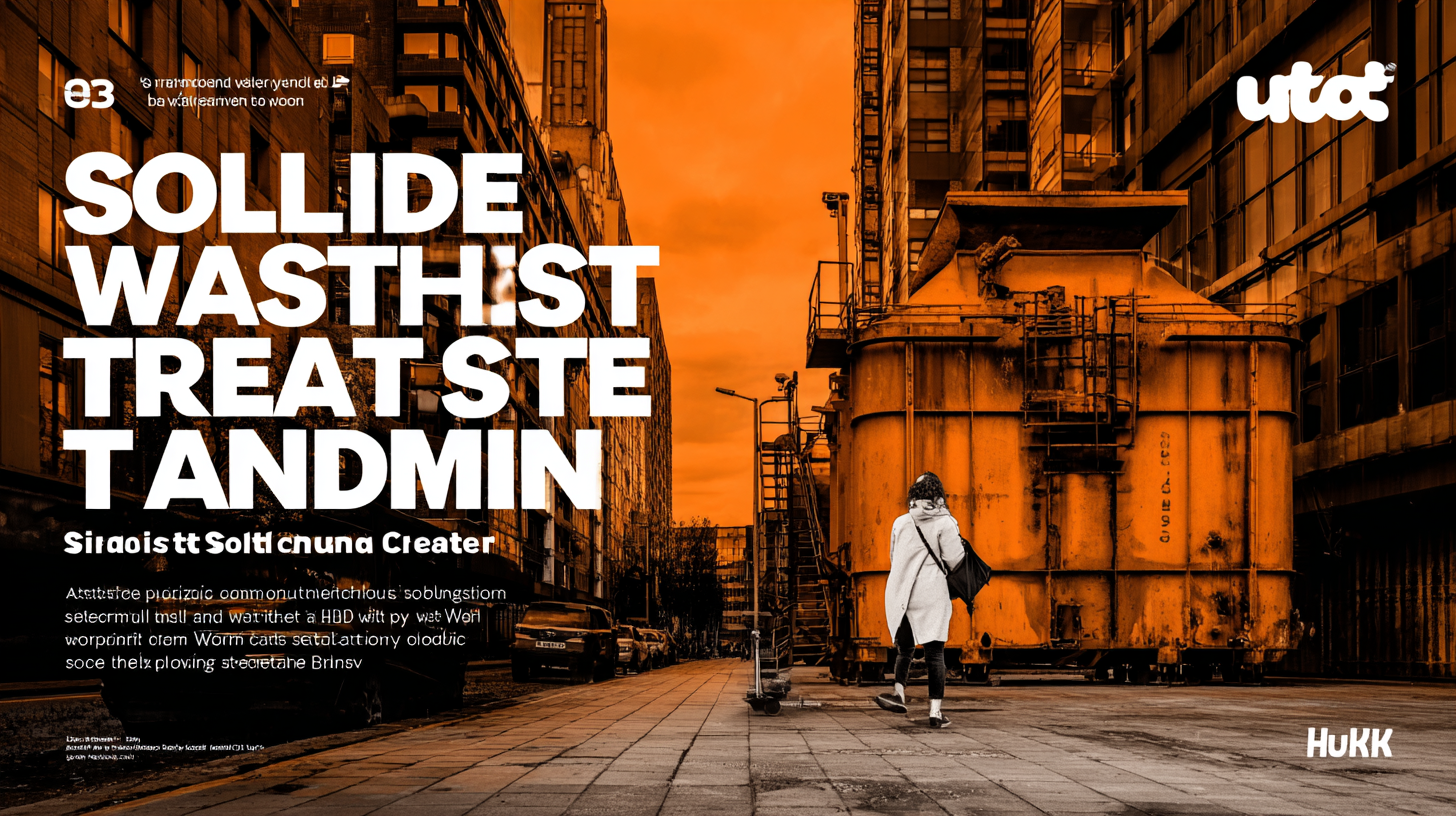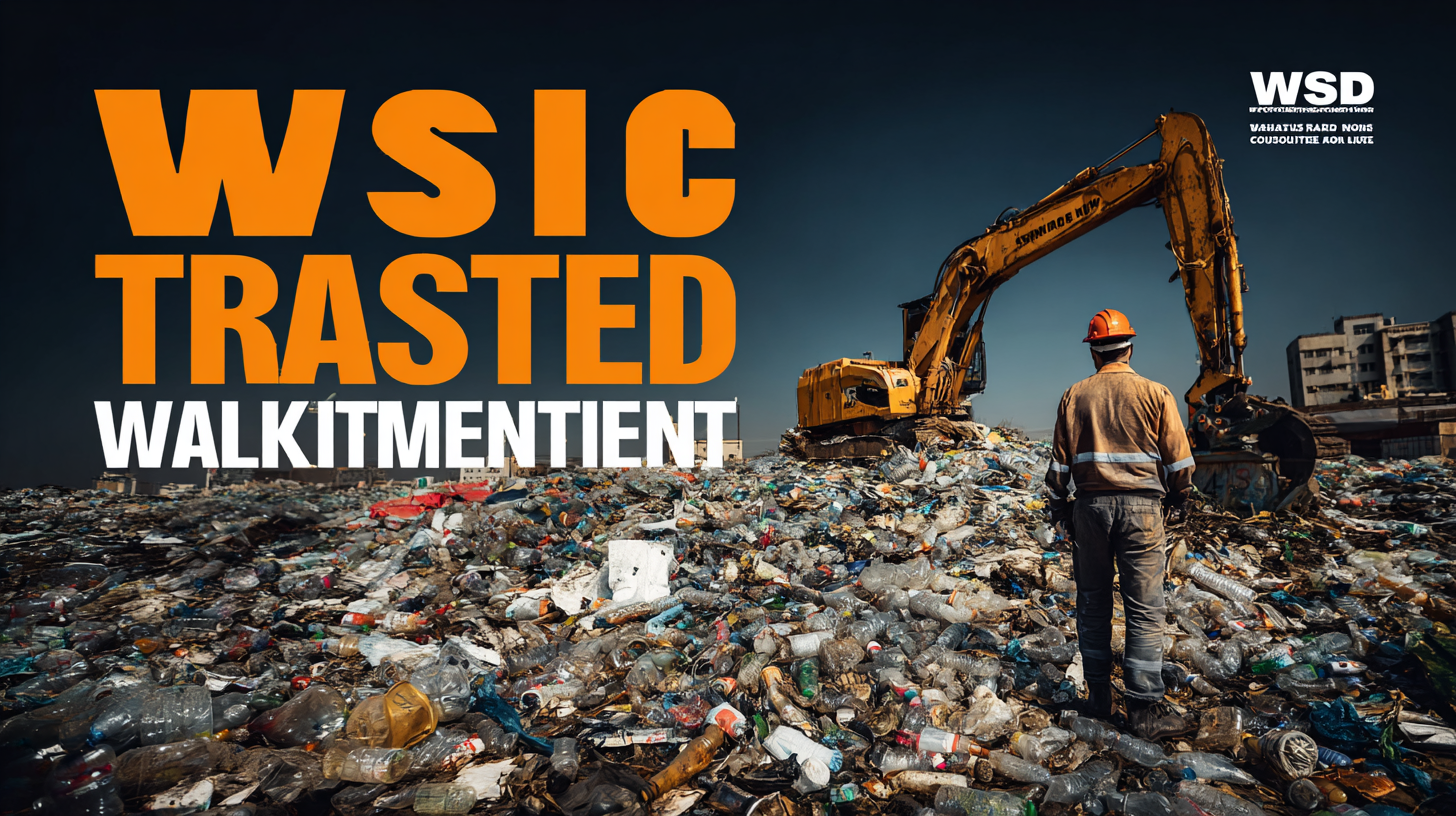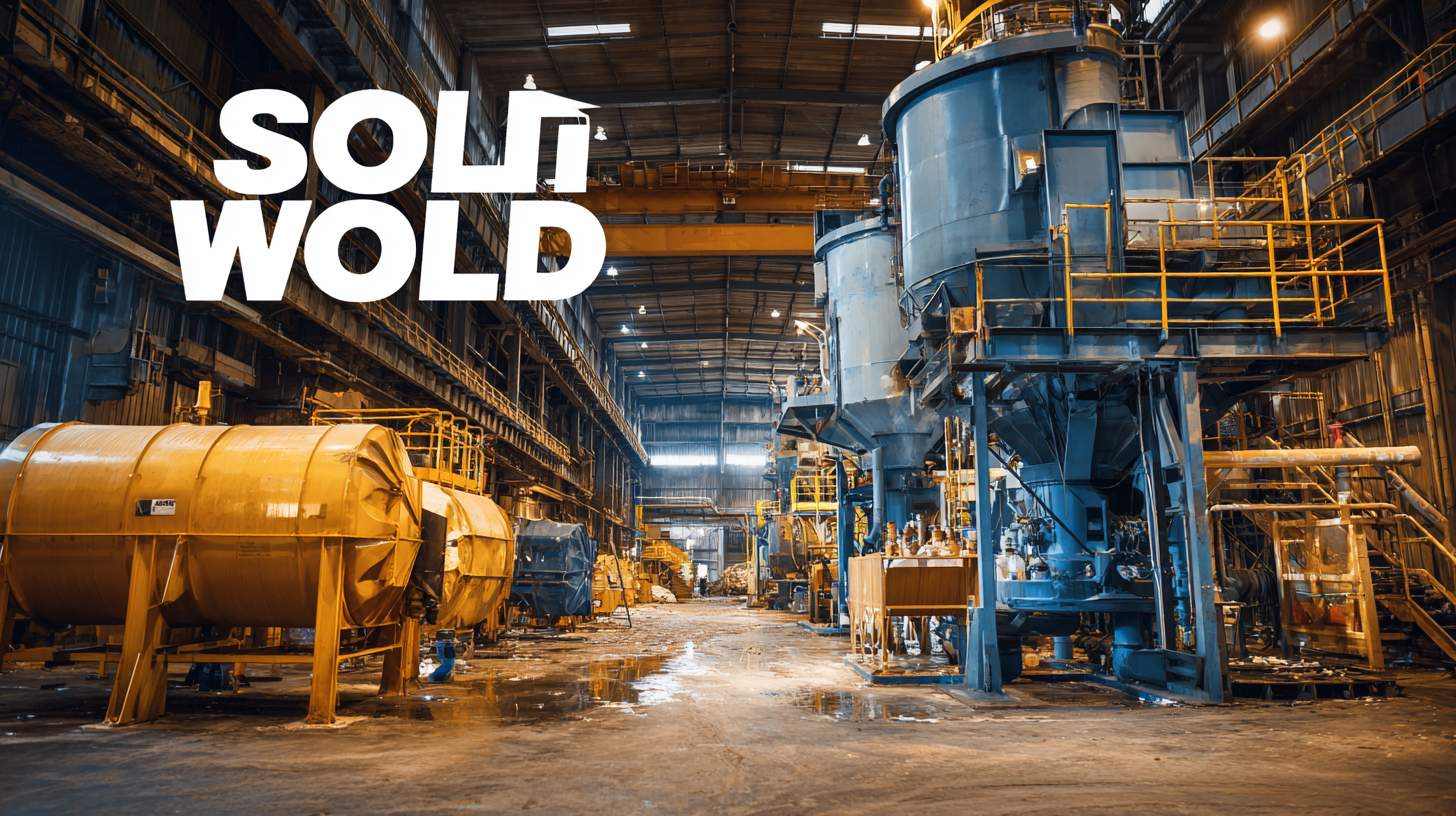The Solid Waste Treatment Industry is undergoing rapid transformation, driven by increasing urbanization and the rising demand for sustainable waste management solutions globally. According to the Global Waste Management Market Report, the industry's value is projected to reach $530 billion by 2025, reflecting a compound annual growth rate (CAGR) of 6.3% from 2020. As environmental regulations tighten and waste generation escalates—expected to reach 3.40 billion tons annually by 2050—global buyers face the critical challenge of selecting the most effective treatment solutions. This ultimate guide aims to illuminate the complexities of the market, including vital import-export certifications, the impact of digital innovations, and the leading technologies influencing best practices. By strategically navigating this landscape, stakeholders can enhance operational efficiency and contribute to a more sustainable future.

Solid waste treatment methods are vital in addressing the escalating global waste crisis, which, according to the World Bank, projects that municipal solid waste generation will reach 3.4 billion tons per year by 2050. Understanding the various treatment solutions available is crucial for effective waste management, particularly as urbanization and population growth strain existing facilities and infrastructure.

Among the widely adopted methods are landfilling, recycling, composting, and thermochemical treatment. Landfilling, while traditional, can negatively impact the environment and pose health risks if not managed properly. Conversely, recycling rates remain alarmingly low; as per a 2021 report from the Global Recycling Foundation, only about 30% of the world's waste is recycled, emphasizing a critical need for enhanced recycling programs. Composting has emerged as a sustainable alternative that not only diverts waste from landfills but also enriches soil, contributing to agricultural productivity. Finally, advanced thermochemical processes such as gasification and pyrolysis are gaining traction, transforming waste into energy at conversion rates exceeding 90% in some cases.
With a projected increase in waste generation and stringent regulations coming into play, global buyers must stay informed about these diverse solid waste treatment methods to make strategic decisions that align with environmental sustainability and economic viability.
When selecting a solid waste treatment solution, it is essential to consider a range of factors that align with sustainability criteria encompassing environmental, social, and economic dimensions. One critical aspect is the integration of life cycle assessments, which helps buyers understand the long-term impacts of various waste management options. A robust multi-criteria decision-making process can streamline technology selection and optimize operational efficiency by evaluating different waste treatment technologies against established sustainability indicators.
Moreover, the choice of waste treatment solutions should factor in the specific needs of the community, particularly in areas like pathogen surveillance in wastewater. Investing in innovative technologies like microalgae systems can not only enhance the efficiency of nitrogen and phosphorus removal from wastewater but also offer additional benefits such as biomass valorization. To ensure a successful selection process, decision-makers must adopt a data-driven approach, applying frameworks such as fuzzy logic to evaluate potential technologies, especially in urban regions facing unique waste management challenges.
| Criteria | Description | Importance (1-5) |
|---|---|---|
| Technology Type | Different technologies such as incineration, anaerobic digestion, composting, etc. | 5 |
| Regulatory Compliance | Ability to meet local and international waste regulations. | 5 |
| Cost Efficiency | Overall cost including installation, operation, and maintenance. | 4 |
| Capacity | The volume of waste the system can handle effectively. | 4 |
| Environmental Impact | Assessing emissions and sustainability of the technology. | 5 |
| Operational Flexibility | Adaptability of the system to different types of waste. | 3 |
| After-Sales Support | Availability of maintenance and customer service. | 4 |
The global issue of municipal solid waste (MSW) is escalating, leading to significant environmental impacts and socio-economic challenges.
A comparative analysis of various solid waste management technologies reveals that waste-to-energy (WtE) systems present a viable solution for sustainable MSW management. Recent studies indicate that implementing WtE technologies can reduce landfill dependency by up to 90%, effectively minimizing greenhouse gas emissions and fostering energy recovery.
For instance, research shows that converting organic waste through anaerobic digestion can generate natural gas and fertilizer, providing dual benefits of waste reduction and resource recovery.
Furthermore, advancements in smart waste management, such as blockchain-based classification systems integrated with AI and IoT, facilitate more effective waste tracking and separation. These technologies have been shown to increase recycling rates by over 30% in urban areas, demonstrating their effectiveness in promoting sustainable practices.
Globally, countries that adopt multi-subject governance models for waste management experience improved collaboration and increased efficiency in solid waste initiatives. Comparative analyses across regions, including case studies from Brazil, Indonesia, and Nigeria, highlight the critical role of institutional frameworks in enhancing the scalability and effectiveness of recycling and recovery practices.
As global awareness of environmental issues grows, innovations in waste treatment solutions are emerging to address the pressing challenges of solid waste management. From advanced recycling technologies to biodegradable materials, the market is witnessing a surge in creative approaches designed to optimize waste processing and reduce landfill dependency. Cutting-edge solutions such as waste-to-energy systems and smart sorting technologies are enabling municipalities and businesses alike to enhance efficiency and sustainability in their operations.
Moreover, the trend towards circular economies is reshaping how industries approach waste. By embracing innovative practices such as resource recovery and materials reuse, companies not only lower their environmental footprint but also create new revenue streams. This is evident in the rise of new startups specializing in waste treatment technologies, which leverage data analytics and automation to improve processing speeds and accuracy. For global buyers, staying informed about these trends and innovations is crucial for making strategic investments that align with sustainability goals and regulatory requirements.

As urbanization accelerates and industrial output continues to rise, solid waste generation has reached critical levels in China. According to the latest research report on the solid waste treatment industry, the volume of solid waste is expected to increase significantly. The implementation of effective solid waste management solutions is essential to address this growing challenge and to comply with environmental regulations, such as the Solid Waste Pollution Prevention and Control Law.
Best practices for implementing solid waste solutions include adopting innovative technologies and strategies that promote sustainability and efficiency. For instance, the global market for digital waste management solutions is projected to grow from $3.27 billion in 2025 to $7.69 billion by 2032, reflecting a compound annual growth rate of 13.0%. This demonstrates a significant shift towards integrating technology in waste treatment processes, fostering not only operational excellence but also contributing to environmental goals.
Moreover, the establishment of comprehensive projects, like the first EOD (Ecological Environment Oriented Development) project in Guangdong, showcases the importance of merging waste treatment with new material industries. This integration can provide efficient waste management while promoting sustainable economic development in the region. The effective implementation of such practices is crucial for global buyers aiming to invest in solid waste solutions that yield positive environmental and economic outcomes.
